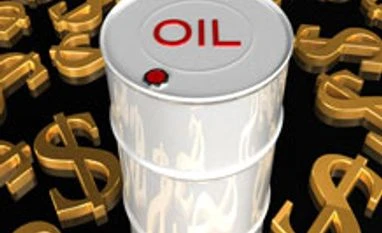Oil prices rose in Asia today as dealers made the most of a weakening dollar while keeping an eye on continuing fighting in Iraq, analysts said.
US benchmark West Texas Intermediate for August delivery rose 23 cents to $105.60 while Brent crude gained eight cents to $112.44 in late-morning trade.
"We are seeing oil prices gain a bit following the weakening of the US dollar from last week," Ric Spooner, chief market analyst at CMC Markets in Sydney, told AFP.
US consumer spending rose only marginally, while jobless claims, another barometer for the world's biggest economy, decreased less than expected.
As oil is traded in the US currency, a weaker dollar makes the commodity cheaper for global buyers, spurring demand and boosting prices.
Spooner said investors are continuing to keep a close watch on the security situation in major crude producer Iraq.
Islamist militants who have overrun swathes of territory in Iraq's north on Sunday declared a caliphate in the regions they control, as fighting with government forces continued unabated.
The militants, who began a lightning offensive on June 9, have yet to directly threaten the key oil-producing region in the country's south.
The violence in Iraq has a direct bearing on global crude prices because the country is the second-biggest oil exporter in the 12-nation Organization of Petroleum Exporting Countries (OPEC) after Saudi Arabia.
It has more than 11% of the world's proved resources and produces 3.4 million barrels a day.
US benchmark West Texas Intermediate for August delivery rose 23 cents to $105.60 while Brent crude gained eight cents to $112.44 in late-morning trade.
"We are seeing oil prices gain a bit following the weakening of the US dollar from last week," Ric Spooner, chief market analyst at CMC Markets in Sydney, told AFP.
Also Read
The dollar rose against the yen and euro in Asian trade today, but was still lower than levels seen last week before the release of weak US economic data.
US consumer spending rose only marginally, while jobless claims, another barometer for the world's biggest economy, decreased less than expected.
As oil is traded in the US currency, a weaker dollar makes the commodity cheaper for global buyers, spurring demand and boosting prices.
Spooner said investors are continuing to keep a close watch on the security situation in major crude producer Iraq.
Islamist militants who have overrun swathes of territory in Iraq's north on Sunday declared a caliphate in the regions they control, as fighting with government forces continued unabated.
The militants, who began a lightning offensive on June 9, have yet to directly threaten the key oil-producing region in the country's south.
The violence in Iraq has a direct bearing on global crude prices because the country is the second-biggest oil exporter in the 12-nation Organization of Petroleum Exporting Countries (OPEC) after Saudi Arabia.
It has more than 11% of the world's proved resources and produces 3.4 million barrels a day.
)